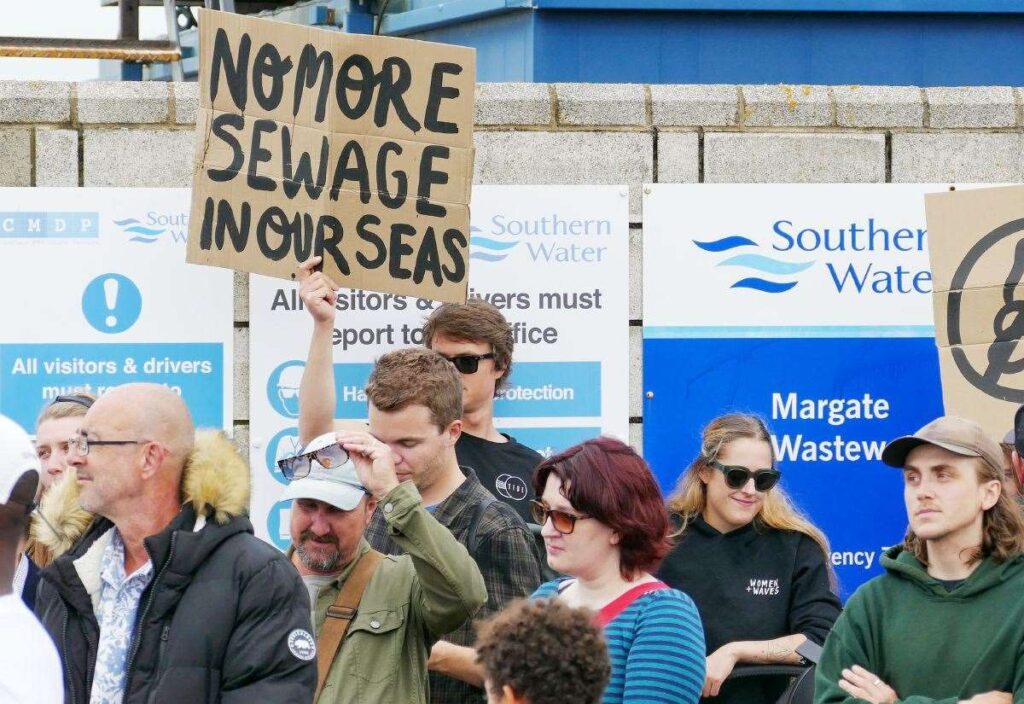Southern Water has pleaded guilty to 13 counts which relate to untreated sewage spills on the Kent coast.
The company admitted it failed to comply with an environmental permit a number of times, when appearing at Medway Magistrates Court yesterday.

The Environment Agency brought the prosecution which relates to unpermitted discharges from Margate and Broadstairs wastewater pumping stations, committed between July 2019 and December 2021.
The spills include incidents in Thanet, which shut several beaches for a week, which the company said at the time was due to a power outage at the Margate Foreness Point pumping station treatment works, caused by a lightening strike.
The closures, which sparked protests demanding an end to the leaks, resulted Thanet District Council (TDC) receiving £100,000 from Southern Water in compensation.
The charges relate to five main incidents across 2019, 2020 and 2021.
Magistrates heard further charges concern Southern Water’s failture to report the unpermitted discharges quickly enough to TDC and the Environment Agency.
The case was adjourned for sentencing at crown court at a date yet to be confirmed.
Southern Water has apologised for past failures and says improvements are being made.
CEO Lawrence Gosden said: “We’re sorry that in the past the company failed its customers at these sites in north Kent, and we acknowledge the concern they rightly feel.
“With new leadership, and a Turnaround Plan launched in 2021 we’ve set out to put these kind of incidents firmly behind us.
“Backed by new shareholders, we’re making the improvements needed to transform the company. The Turnaround Plan has already delivered a large reduction in total pollution events, and we’re investing heavily to upgrade our infrastructure.
“In Thanet alone, since 2020 we’ve invested more than £28 million in our wastewater sites – including a significant pump replacement project for Margate and Broadstairs, repairs to the major sewer between Margate and Weatherlees, and a huge Thanet-wide sewer upgrade scheme.
“We plan to spend a further £47 million over the next ten years in the area, which will include boosting the resilience of the local power supply, and improving pump capacity and wastewater processes at these critical sites.”



